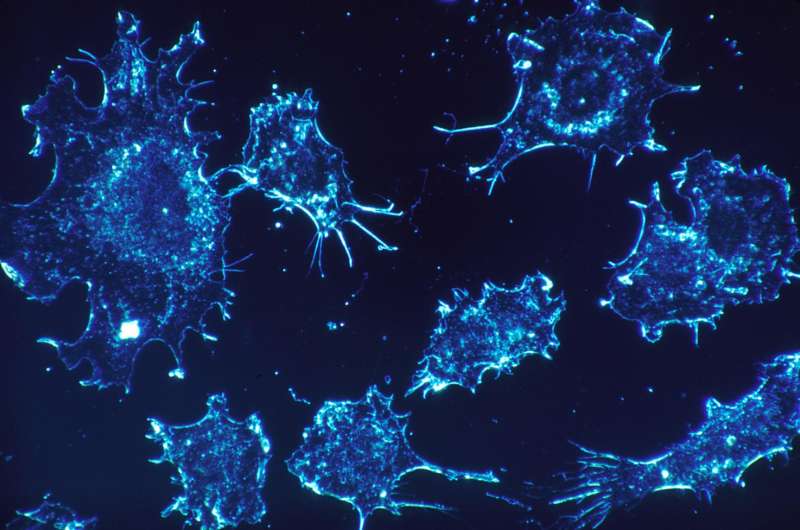Scientists find some human cancers to be 'evolutionary accidents'

New research, published in Biological Reviews and conducted by researchers from the University of Liverpool and Escola Superior de Ciências da Saúde (Brasília, Brazil) has found some type of cancers unique to humans may be a result of evolutionary accidents.
Cancer is a major cause of death worldwide. But humans are not the only species affected by cancer; in fact, only a few primitive animals are thought to escape the disease. Furthermore, incidence rates and cancer types differ widely among species. However, how cancer patterns in humans compare to those of other species remains largely unknown.
Researchers, led by Dr Joao Pedro De Magalhaes from the University of Liverpool's Institute of Ageing and Chronic Disease, aimed to identify further clues about cancer and its evolutionary underpinnings in humans and across a wide range of animals by conducting the largest survey of animal cancer data to date.
The researchers began examining data relating to primates then continued onto other mammals before examining cancer in birds, amphibians, reptiles, fish and finally invertebrates and plants. They then reviewed the cancer incidence and types for humans and animal types.
They found that some types of cancer are widespread across nearly all species, like blood cancers (lymphomas and leukaemia), and there are some types of cancer that seem to be unique of humans, like lung cancer, prostate and testicular cancers. These could be evolutionary accidents, a product of random events in the evolution of our species.
Dr De Magalhaes, said: "Perhaps unique mutations during the evolution of the human lineage contribute to the disproportionately high incidence of some cancers in our species when compared to all other studied species."
Another hypothesis is that the increasing life expectancy of humans is allowing the appearance of cancers that would not have affected our ancestors.
First author Thales Albuquerque, said: "Cancer rates among humans are high, and they are bound to keep increasing. We still do not know all mechanisms that lead to such a high incidence of cancer in our species, but one hypothesis is that cultural changes and technological advances have produced the greatest of evolutionary mismatches - a situation where the environment changes into something different from that which a species is adapted to, and that provokes stress and may increase susceptibility to cancer.
Dr De Magalhaes: "Our work highlights the different evolutionary pressures acting on cancer early in life (with a high prevalence of blood cancers presumably driven by the need to fight pathogens) and cancer late in life that escapes natural selection, including human-specific cancers that may be evolutionary accidents or related to a mismatch with the modern environment and lifestyle."
More information: Thales A. F. Albuquerque et al, From humans to hydra: patterns of cancer across the tree of life, Biological Reviews (2018). DOI: 10.1111/brv.12415
















